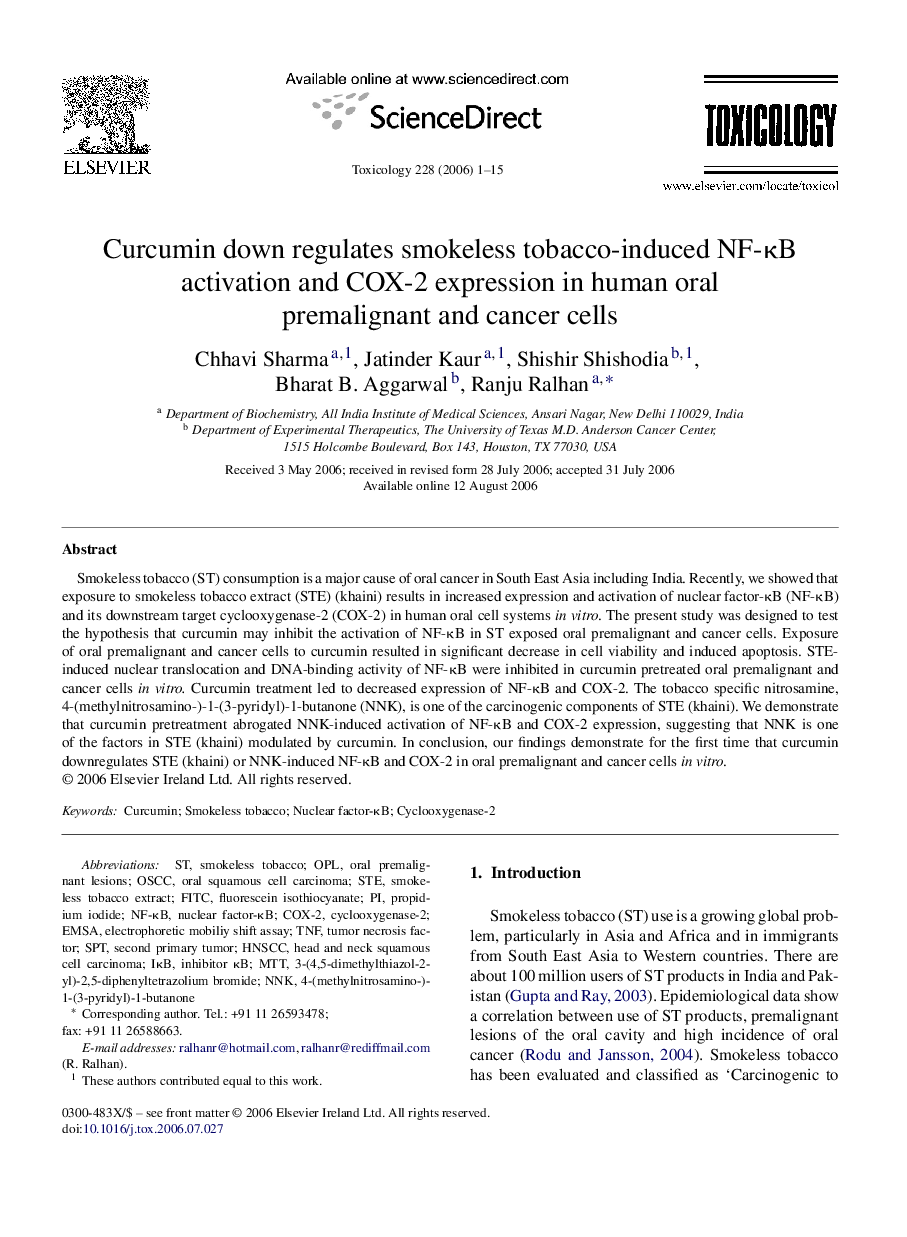| Article ID | Journal | Published Year | Pages | File Type |
|---|---|---|---|---|
| 2597680 | Toxicology | 2006 | 15 Pages |
Smokeless tobacco (ST) consumption is a major cause of oral cancer in South East Asia including India. Recently, we showed that exposure to smokeless tobacco extract (STE) (khaini) results in increased expression and activation of nuclear factor-κB (NF-κB) and its downstream target cyclooxygenase-2 (COX-2) in human oral cell systems in vitro. The present study was designed to test the hypothesis that curcumin may inhibit the activation of NF-κB in ST exposed oral premalignant and cancer cells. Exposure of oral premalignant and cancer cells to curcumin resulted in significant decrease in cell viability and induced apoptosis. STE-induced nuclear translocation and DNA-binding activity of NF-κB were inhibited in curcumin pretreated oral premalignant and cancer cells in vitro. Curcumin treatment led to decreased expression of NF-κB and COX-2. The tobacco specific nitrosamine, 4-(methylnitrosamino-)-1-(3-pyridyl)-1-butanone (NNK), is one of the carcinogenic components of STE (khaini). We demonstrate that curcumin pretreatment abrogated NNK-induced activation of NF-κB and COX-2 expression, suggesting that NNK is one of the factors in STE (khaini) modulated by curcumin. In conclusion, our findings demonstrate for the first time that curcumin downregulates STE (khaini) or NNK-induced NF-κB and COX-2 in oral premalignant and cancer cells in vitro.
